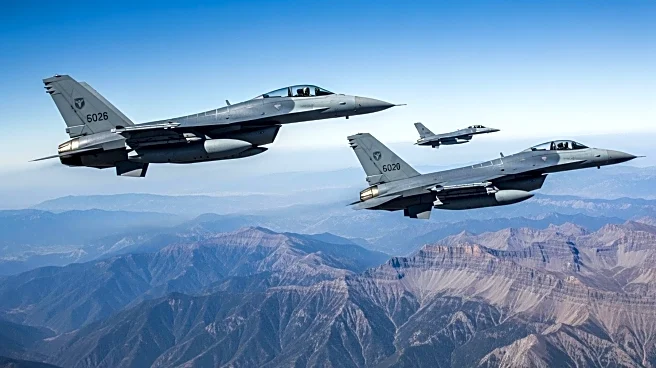What's Happening?
President Trump has expressed interest in re-establishing a U.S. presence at Bagram Air Base in Afghanistan, a site previously evacuated by the Biden administration in July 2021. The base, which was a symbol of American military power for nearly two decades, is strategically located near China's border and a nuclear testing range in Xinjiang province. Trump argues that regaining control of Bagram is crucial for counterterrorism operations against groups like the Islamic State-Khorasan. The Taliban, currently in control of Afghanistan, seeks U.S. recognition and access to frozen assets, but remains resistant to foreign military presence. Negotiations are reportedly in early stages, with discussions about a small American contingent at Bagram.
Why It's Important?
The potential return of U.S. forces to Bagram Air Base could significantly impact regional security dynamics, particularly in countering terrorist threats. It may also influence U.S.-China relations due to the base's proximity to Chinese territory. For the Taliban, U.S. recognition and economic engagement are critical, but their resistance to foreign troops poses challenges. The move could affect U.S. foreign policy, especially in terms of diplomatic relations and military strategy in volatile regions. Stakeholders include the U.S. military, Afghan government, and regional powers like China and Russia.
What's Next?
Negotiations between the U.S. and Taliban may continue, focusing on economic and political engagement. The U.S. could leverage its position to influence Taliban policies, particularly regarding human rights issues. The international community will likely monitor these developments closely, assessing the implications for regional stability and global counterterrorism efforts.
Beyond the Headlines
The ethical implications of recognizing the Taliban government, given its human rights record, are significant. The U.S. must balance strategic interests with moral considerations, potentially setting a precedent for engagement with regimes that violate international norms. Long-term shifts in U.S. foreign policy could emerge from these negotiations.










